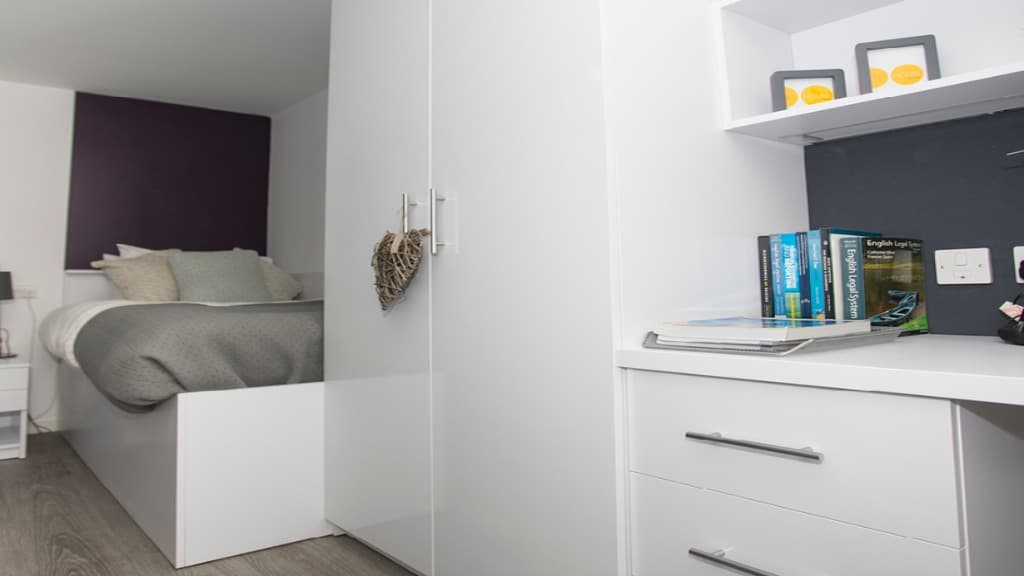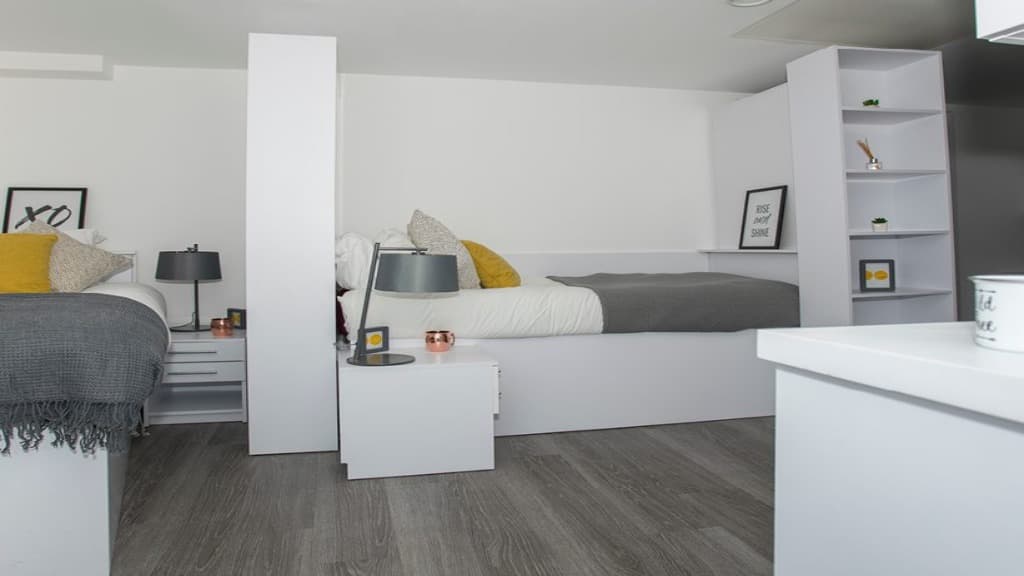Moving into student accommodation can be an exciting yet nerve-wracking experience, especially if you are planning to live with your partner. Living with someone in close quarters can bring unique challenges, but it can also be a rewarding experience if you and your partner are well-prepared. To ensure a smooth transition into student housing as a couple, there are several important factors to consider. Here’s a comprehensive guide to help you navigate the process of securing student accommodation with your partner.

1. Understand the Policies of Your Accommodation Provider
Before making any decisions, it’s essential to understand the specific policies of the accommodation provider regarding couples living together. Not all student accommodations permit couples to cohabit, and those that do may have specific guidelines or restrictions in place. Start by contacting the landlord or the accommodation office directly to ask about their policies for couples. Some providers may allow couples in certain types of rooms, such as larger studios or one-bedroom apartments, while others may only offer single occupancy rooms.
Additionally, some accommodations may require both occupants to be full-time students, while others might allow a non-student partner to live in the accommodation under certain conditions. It’s also important to ask about any additional fees or changes to the rental agreement that might apply if you’re living with a partner. Knowing these details upfront can help you avoid any surprises later on.

2. Check Websites for Specific Information
Most student accommodation providers have websites that provide detailed information about their policies, rental agreements, and house rules. It’s a good idea to thoroughly review these websites before making any commitments. Look for sections on occupancy policies, especially those pertaining to couples or dual occupancy. Some websites may also have FAQs that address common concerns about living arrangements, privacy, and shared living spaces.
If the information on the website is unclear, don’t hesitate to reach out directly to the accommodation office for clarification. It’s better to ask questions before signing a lease than to find out later that there are restrictions that could affect your living situation.
3. Consider the Type of Accommodation
When searching for student accommodation, consider the type of housing that will best suit your needs as a couple. Here are a few common options:
- Studio Apartments: These are ideal for couples because they provide privacy and space for two people. A studio apartment typically includes a kitchenette, a private bathroom, and a living area that doubles as a bedroom. This setup allows for a more intimate and private living arrangement, which can be beneficial for couples who need their own space.
- One-Bedroom Apartments: If available, a one-bedroom apartment can offer more space and separation between the living and sleeping areas. This option provides additional comfort and privacy, making it easier for both partners to study, relax, and enjoy their time together without feeling cramped.
- Shared Flats or Houses: In some cases, couples might consider sharing a flat or house with other students. This option can be more affordable and can provide a social environment, but it’s important to ensure that both you and your partner are comfortable with sharing common spaces like the kitchen, bathroom, and living room. Additionally, check if the accommodation rules allow couples to share a room within a shared flat or house.

4. Discuss Finances and Budgeting
Living with a partner involves discussing and agreeing on financial matters. It’s essential to have a clear understanding of each other’s financial situation and to establish a budget that works for both of you. Discuss how you will split rent and utility bills, and whether you will have joint or separate accounts for household expenses. Consider additional costs such as internet, groceries, transportation, and entertainment.
Also, be aware that some accommodations might charge an extra fee for dual occupancy. Make sure to factor this into your budget when considering different housing options. It’s crucial to be upfront about finances to avoid misunderstandings or conflicts down the road.
5. Plan for Shared Responsibilities
Living together means sharing responsibilities, from cooking and cleaning to managing bills and other household tasks. Before moving in, have an open discussion about how you will divide these responsibilities. It’s helpful to create a plan or a rota to ensure that both partners contribute equally and that one person doesn’t end up feeling overwhelmed.
Shared responsibilities also extend to maintaining a peaceful and respectful living environment. Discuss your expectations for study time, quiet hours, and social activities to ensure that you are both on the same page. Clear communication is key to a successful living arrangement.

6. Prepare for the Emotional Adjustment
Living with a partner in student accommodation can be an emotionally intense experience. Being in close quarters can amplify both the good and the challenging aspects of your relationship. It’s important to be prepared for this adjustment and to approach it with patience and understanding.
Make sure you both have your own space to unwind and recharge, even in a small living area. Respect each other’s need for privacy and personal time. It’s also a good idea to set boundaries and have open lines of communication about any issues that arise. Remember that living together is a learning process, and it’s okay to make adjustments as you go along.
7. Consider the Social and Academic Environment
When choosing accommodation, think about how the living arrangement will affect your social and academic life. Living with a partner can provide emotional support, but it’s also important to maintain individual friendships and social circles. Encourage each other to stay engaged with the wider student community and participate in social and academic events.
From an academic perspective, ensure that your living arrangement supports your study habits. If one of you needs a quiet environment to study while the other prefers background noise or group study sessions, make sure you find a balance that works for both of you.
8. Have a Plan for Conflict Resolution
No matter how compatible you are as a couple, conflicts are bound to arise when living together. It’s important to have a plan for resolving disagreements in a healthy and constructive manner. Establish ground rules for handling conflicts, such as agreeing to take a break when emotions run high and coming back to the discussion with a calm mindset.
Effective communication is essential for conflict resolution. Practice active listening and express your feelings without placing blame. Remember that compromise is often necessary and that it’s okay to agree to disagree on certain issues.
9. Seek Support if Needed
If you find that living together is becoming more challenging than expected, don’t hesitate to seek support. Most universities offer counseling services for students, which can be a valuable resource for addressing relationship challenges and improving communication skills. Additionally, talking to trusted friends, family members, or mentors can provide helpful perspectives and advice.
10. Enjoy the Experience
Living with your partner during your time at university can be a deeply rewarding experience. It provides an opportunity to grow together, learn more about each other, and build a stronger bond. Embrace the adventure and make the most of your time together. Create memories, support each other’s academic and personal goals, and enjoy the journey of living together in student accommodation.
Conclusion
Moving into student accommodation with your partner can be a complex but fulfilling experience. By understanding the accommodation policies, discussing finances, planning for shared responsibilities, and preparing for the emotional adjustments, you can ensure a smooth transition into your new living arrangement. Remember that open communication, flexibility, and mutual support are key to making this experience a positive one. With careful planning and consideration, you and your partner can enjoy a harmonious and enriching time living together in student accommodation.
This guide provides a comprehensive overview of what to consider when moving into student accommodation with a partner, helping you to make informed decisions and have a successful living experience.

